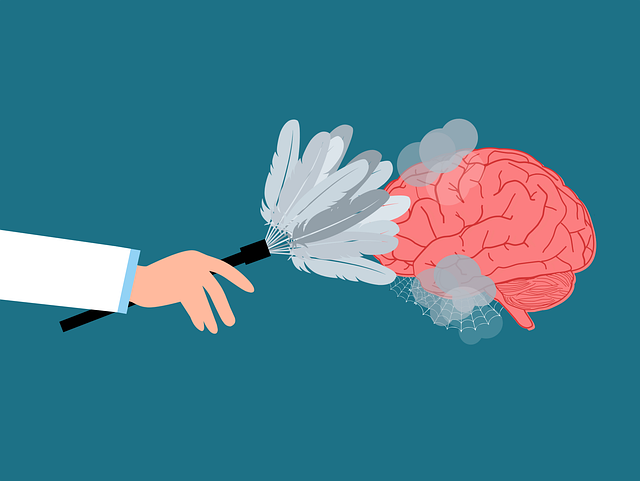Mental health professionals at Northglenn Suicide Prevention Therapy centers navigate complex situations requiring nuanced approaches. They assess personal histories and risk factors, implement tailored interventions, and prioritize emotional intelligence to support clients effectively. Cultural sensitivity, comprehensive risk assessment tools, and holistic initiatives like mental wellness coaching programs foster a supportive environment. Continuous self-awareness exercises and emotional regulation strategies empower professionals to prevent burnout and enhance patient care, ensuring high-quality therapeutic experiences.
Mental health professionals face unique challenges, with potential risks lurking in every client interaction. This article explores the critical aspect of risk assessment within the context of Northglenn Suicide Prevention Therapy. We delve into the specific dangers these practitioners encounter and provide a comprehensive guide to identifying and mitigating hazards. From understanding the unique risks to implementing robust safety protocols, this resource offers essential insights for ensuring the well-being of mental health professionals while fostering effective client care.
- Understanding the Unique Risks in Mental Health Practice
- Identifying Potential Hazards in Northglenn Suicide Prevention Therapy
- Implementing Comprehensive Risk Assessment Tools and Techniques
- Enhancing Safety Protocols for Effective Client Care
- Continuous Monitoring and Support for Mental Health Professionals
Understanding the Unique Risks in Mental Health Practice

Mental health professionals frequently encounter complex and sensitive situations that can pose unique risks to their well-being. Unlike other therapeutic settings, Northglenn Suicide Prevention Therapy often involves working with individuals who are facing severe emotional distress, including thoughts of self-harm or suicide. This highly charged environment demands a nuanced understanding of risk factors and the ability to navigate delicate situations with care.
Professionals must be adept at assessing not only the client’s current mental state but also their personal history, as past experiences can significantly impact their vulnerability to depression prevention challenges. A thorough risk assessment is crucial for identifying potential triggers and developing effective interventions. By adopting a proactive approach that includes confidence-boosting strategies and ongoing self-care practices, mental health professionals can better protect themselves while providing the highest quality care to their clients.
Identifying Potential Hazards in Northglenn Suicide Prevention Therapy

In Northglenn Suicide Prevention Therapy sessions, mental health professionals must be vigilant in identifying potential hazards that could impact client well-being. One key area to focus on is emotional intelligence—the ability to understand and manage one’s own emotions and empathize with clients’ feelings. Professionals should ensure they are adept at recognizing subtle cues of distress or impending crisis, as clients may not always express their emotions openly. This involves active listening, non-verbal cue awareness, and the capacity to respond calmly and effectively during intense moments.
Additionally, cultural sensitivity in mental healthcare practice is paramount. Northglenn, like many diverse communities, has unique cultural norms and beliefs surrounding mental health and suicide prevention. Professionals must be educated about these nuances to avoid inadvertently causing harm or exacerbating existing challenges. Incorporating coping skills development into therapy can empower clients with effective strategies to navigate emotional turmoil, build resilience, and enhance their overall well-being.
Implementing Comprehensive Risk Assessment Tools and Techniques

In the realm of mental health care, comprehensive risk assessment is a cornerstone for ensuring patient safety and well-being, especially in high-risk populations like those seeking Northglenn Suicide Prevention Therapy. Implementing robust tools and techniques goes beyond simple evaluation; it involves a multi-faceted approach that integrates Self-Awareness Exercises, Empathy Building Strategies, and evidence-based practices. These strategies aid professionals in unraveling the complex interplay of factors contributing to an individual’s risk, enabling them to deliver tailored interventions.
By adopting advanced risk assessment methods, mental health practitioners can effectively navigate the intricate landscape of a client’s psychological state. This involves utilizing validated tools that capture not just overt threats but also subtle indicators of distress or emerging crises. Incorporating regular Self-Awareness Exercises and fostering an environment of open communication through Empathy Building Strategies further strengthens the assessment process. Ultimately, these practices empower professionals to anticipate potential risks, respond promptly, and guide their clients toward resilience and recovery.
Enhancing Safety Protocols for Effective Client Care

In the realm of mental health care, ensuring client safety is paramount. Northglenn Suicide Prevention Therapy centers have recognized the need to go beyond basic protocols and implement enhanced safety measures for comprehensive client care. These initiatives are crucial in mitigating risks, fostering a supportive environment, and promoting positive outcomes. By prioritizing resilience building among healthcare providers, these therapies aim to prevent burnout—a common yet detrimental issue within the healthcare sector.
Integrating mental wellness coaching programs can significantly contribute to the development of robust safety protocols. Such programs empower professionals with tools to recognize early warning signs, manage stress effectively, and maintain professional boundaries. This holistic approach not only enhances client safety but also enables healthcare providers to offer sustained support, ultimately enriching the therapeutic experience at Northglenn Suicide Prevention Therapy facilities.
Continuous Monitoring and Support for Mental Health Professionals

Mental health professionals play a crucial role in supporting others’ well-being, but they also face unique risks and challenges. To mitigate these, continuous monitoring and support are essential components of their practice. Regular self-awareness exercises can help healthcare providers recognize signs of stress or burnout early on, enabling them to implement effective burnout prevention strategies for healthcare providers before it becomes severe.
Northglenn Suicide Prevention Therapy emphasizes the importance of emotional regulation as a key aspect of this process. By fostering healthy coping mechanisms and promoting open dialogue about mental health struggles, professionals can create a supportive environment that enhances their own resilience. This holistic approach not only benefits the therapists but also translates to better patient care, ensuring that those seeking help receive the most effective support available.
Mental health professionals, like those practicing in Northglenn Suicide Prevention Therapy, face unique risks that demand specialized attention. By understanding these risks and implementing robust risk assessment tools, such as comprehensive evaluations and safety protocols, practitioners can ensure effective client care. Continuous monitoring and supportive systems are vital to mitigate potential hazards, fostering a healthier work environment for professionals and enhancing the quality of care provided to those in need.












